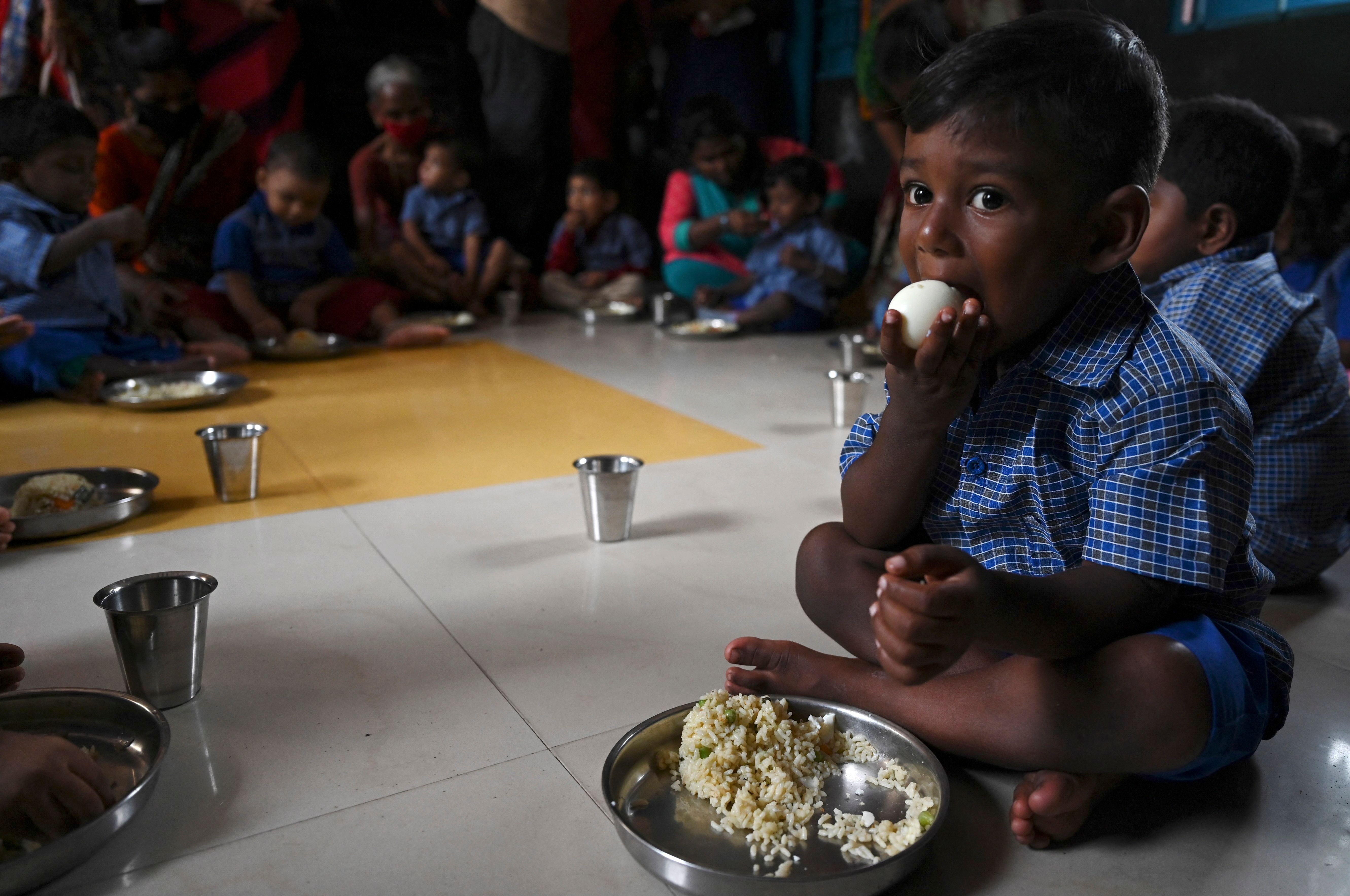India slips out of top 100 countries on Global Hunger Index
Report cautions that ‘toxic cocktail’ of climate crisis, Covid and protracted violent conflicts have derailed the fight against global hunger

Your support helps us to tell the story
From reproductive rights to climate change to Big Tech, The Independent is on the ground when the story is developing. Whether it's investigating the financials of Elon Musk's pro-Trump PAC or producing our latest documentary, 'The A Word', which shines a light on the American women fighting for reproductive rights, we know how important it is to parse out the facts from the messaging.
At such a critical moment in US history, we need reporters on the ground. Your donation allows us to keep sending journalists to speak to both sides of the story.
The Independent is trusted by Americans across the entire political spectrum. And unlike many other quality news outlets, we choose not to lock Americans out of our reporting and analysis with paywalls. We believe quality journalism should be available to everyone, paid for by those who can afford it.
Your support makes all the difference.India has slipped out of the top 100 countries in the world on the newly released Global Hunger Index, with the latest report highlighting a “serious” level of hunger among the country’s children.
The country dropped from its 94th position in 2020 to 101 this year, falling behind the neighbouring states of Pakistan, Bangladesh and Nepal.
The report, prepared jointly by Irish aid agency Concern Worldwide and German organisation Welt Hunger Hilfe, calculates hunger levels and malnutrition across the world.
The index uses four indicators to arrive at a country’s score, including undernourishment, child wasting (the number of children under the age of five with low weight for their height), child stunting (the number of children with lower than expected height), and child mortality.
Eighteen countries, including China, Brazil and Kuwait, shared the top scores on the GHI report. The index does not include most of the world’s highest-income countries, where rates of child hunger are very low. India, with a score of 27.5, was placed in the “serious” category alongside Pakistan, which ranked 92nd with a score of 24.7.
At 17.3 per cent, India observed the highest rate of child wasting worldwide for 2016 -2020, reflecting acute malnutrition. “People have been severely hit by Covid-19 and by pandemic-related restrictions in India,” said the report.
Bangladesh and Nepal fared better among the South Asian countries and were placed in the “moderate” category, jointly in 76th position.
Five countries – Central African Republic, Chad, Democratic Republic of Congo, Madagascar and Yemen – with scores between 35 and 49.9, were placed in the “alarming” category. Somalia had the lowest score and was the lone country categorised in the “extremely alarming” group.
While this year the report assessed data for 135 countries, it did not have sufficient data for about 19 countries to calculate their GHI scores.
The report also cautioned that due to the “toxic cocktail of the climate crisis, the Covid-19 pandemic and increasingly severe and protracted violent conflicts”, the fight against global hunger is dangerously off track. “These forces have slowed or reversed previous progress in the fight against hunger.”
The report has projected that “the world as a whole and 47 countries, in particular, will fail to achieve” low hunger by 2030.
“Violent conflict is the leading cause of food crises. It affects virtually every aspect of food systems, from production, harvesting, processing, and transport to input supply, financing, marketing, and consumption,” it said. The report added, that there is a two-way link between hunger and conflict, as the “heightened food insecurity can contribute to violent conflict”.
The report emphasised the need to resolve food insecurity in order to build sustainable peace.
Join our commenting forum
Join thought-provoking conversations, follow other Independent readers and see their replies
Comments